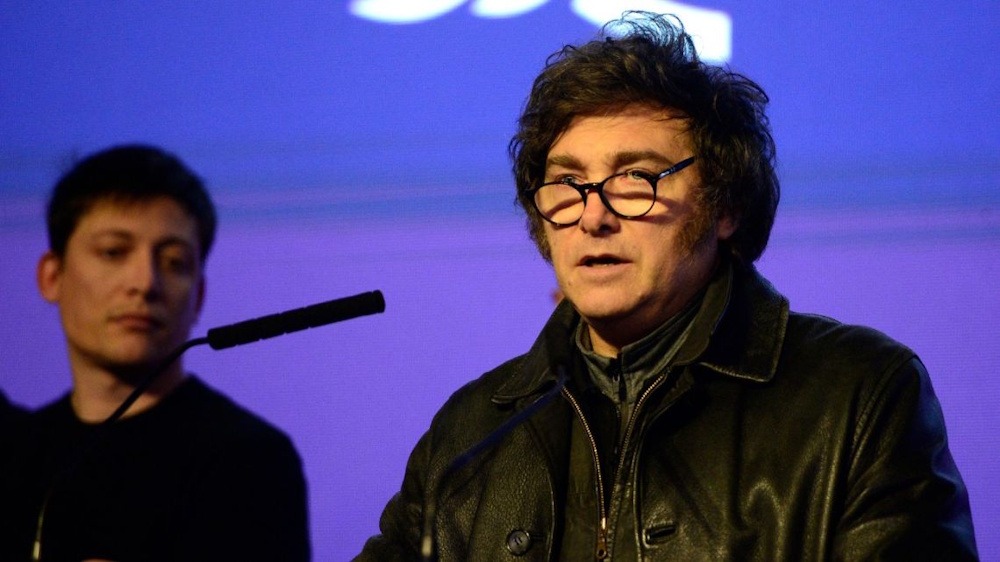In the wake of a significant electoral setback and subsequent market anxieties, the President maintains that his economic reform agenda will proceed without alteration. President Javier Milei has committed to maintaining his economic programme, notwithstanding a significant setback in the recent elections in Buenos Aires Province. In a social media post on Tuesday, the leader of La Libertad Avanza asserted that his strategy for Argentina’s ailing economy would remain steadfast and would not be altered “by a millimetre,” regardless of the recent losses and ensuing market anxieties.
Last weekend, Milei’s administration faced setbacks in crucial local legislative elections within Buenos Aires Province, a bastion of the opposition Peronists that accounts for 40 percent of Argentina’s electorate. La Libertad Avanza garnered 33.7 percent of the vote in the region, trailing the opposition Peronist alliance, Fuerza Patria, which achieved a significant 47.2 percent. The recent defeat occurs merely weeks ahead of the national midterm elections scheduled for October 26, during which Milei aims to enhance his party’s representation in Congress. “Just as I stated on Sunday, we will not shift our economic programme by even a millimetre,” Milei posted. The president emphasized the continuous backing from the International Monetary Fund, citing a statement from the organization that endorses Argentina’s strategies for monetary and exchange-rate stability, fiscal discipline, and deregulation initiatives.
“IMF staff is closely engaged with the Argentine authorities as they implement their programme for entrenching stability and improving the country’s growth prospects,” stated Julie Kozack. “We support their commitment to ensure the sustainability of the programme’s FX and monetary framework, as well as their continued adherence to the fiscal anchor and comprehensive deregulation agenda,” added the official. Milei delineated the foundational elements of his strategy: achieving fiscal balance, imposing stringent restrictions on money creation, and committing to an exchange-rate band established in conjunction with the IMF. The system, integral to a US$20-billion programme established with the multilateral lender in April (of which US$14 billion has already been disbursed), limits government intervention in the currency market unless the dollar fluctuates beyond the range of 975 to 1,470 pesos. The range is subject to monthly adjustments of one percent via micro-devaluations. Economy Minister Luis Caputo further emphasized the message.
“We will not deviate one iota from the economic programme,” he stated. The Milei administration has dedicated a significant portion of the week to addressing the economic repercussions stemming from last weekend’s defeat. On Monday, certain Argentine equities traded experienced declines of up to 15 percent, while the Buenos Aires Stock Exchange saw a decrease of 13 percent. Meanwhile, the dollar experienced a notable increase, reaching the upper limit of the currency band, and stabilizing at 1,425 pesos at Banco Nación on both Monday and Tuesday – reflecting a rise of 3.26 percent compared to Friday. Last week, the Milei administration altered its approach to proactively engage in the foreign exchange market in an effort to mitigate the appreciation of the dollar, despite it not having exceeded the upper threshold of the floating band. The President is encountering significant political pressure in light of a burgeoning scandal concerning purported corruption at the ANDIS national disability agency.
Leaked audio recordings featuring the body’s former chief implicate the president’s sister, Karina Milei, in an alleged bribery scheme concerning the public procurement of medicine and services for the disabled. Karina, serving as the chief-of-staff to the President, stands as the head of state’s most trusted advisor. An ongoing criminal investigation is examining the recordings, which have yet to be verified for their authenticity. On Monday, the ruling party unveiled the establishment of a “national political committee” and urged for discussions with Argentina’s influential provincial governors.

